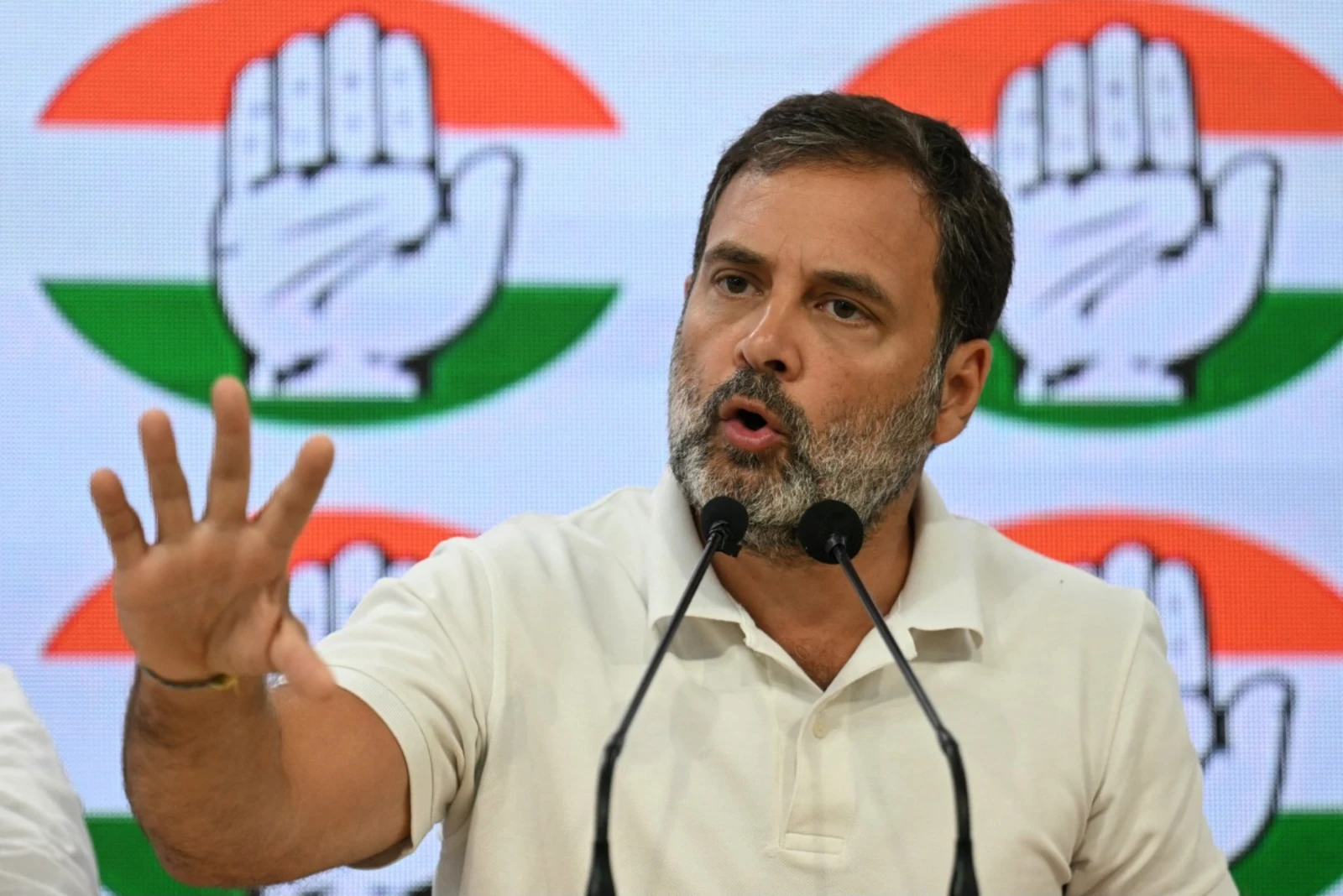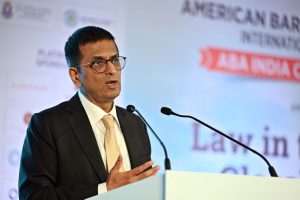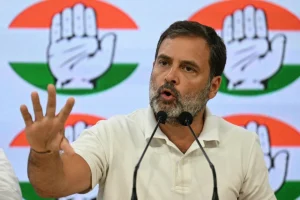The Allahabad High Court recently directed the Union Ministry of Home Affairs (MHA) to take a decision on a plea seeking the cancellation of senior Congress leader Rahul Gandhi’s Indian citizenship. The petition, filed by a Karnataka BJP worker, S. Vignesh Shishir, claims that Gandhi may possess dual British citizenship, a matter that has sparked significant political and legal debate. The court’s directive came on Monday, November 25, 2019, during the proceedings of a Public Interest Litigation (PIL) and has placed the matter under further scrutiny, with the next hearing scheduled for December 19.
Background of the Petition
The petition in question was submitted by Shishir, who had previously raised concerns about Gandhi’s citizenship status. He contends that the Congress leader may hold dual nationality, which could violate Indian citizenship laws. Specifically, the petitioner argues that if Gandhi does possess British citizenship, it would undermine his eligibility as an Indian citizen under the provisions of the Indian Constitution and the Citizenship Act of 1955.
In response to Shishir’s petition, the Lucknow bench of the Allahabad High Court, comprising Justices AR Masoodi and Subhash Vidyarthi, ordered the Ministry of Home Affairs to take action on the matter and present its findings before the court. The bench emphasized that the central government should provide clarity on the action it intends to take with respect to Shishir’s request.
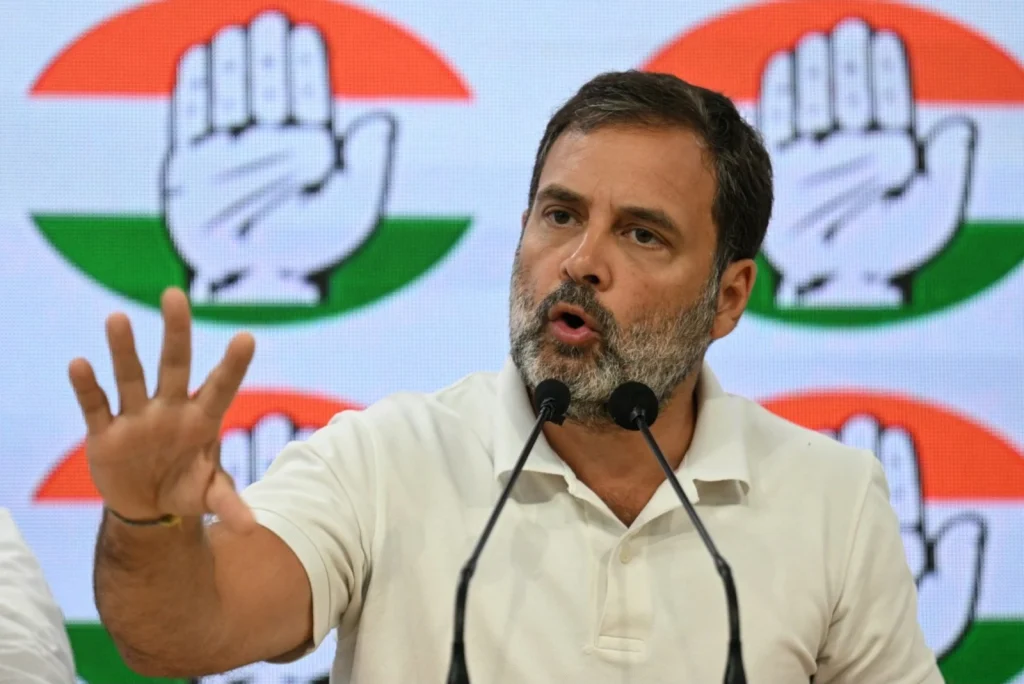
On November 25, Deputy Solicitor General of India informed the court that the Ministry of Home Affairs had indeed received the representation made by Shishir. This update was essential to moving forward with the case, as it indicated that the central authorities were now formally involved in addressing the issue.
Court’s Directive and Expectations
The bench of Justices Masoodi and Vidyarthi directed the Additional Solicitor General, SB Pandey, to obtain clear instructions from the Ministry of Home Affairs regarding the petitioner’s claims. The court instructed that the response be provided within three weeks, setting the next hearing for December 19. The court’s focus at this stage is on determining whether the government has received the representations and the steps it plans to take in light of the petition.
This order came as part of the ongoing legal proceedings concerning Rahul Gandhi’s citizenship status. The court’s decision to set a three-week timeline for the MHA to file a response reflects the urgency with which this matter is being treated. It also shows the court’s commitment to ensuring that the relevant authorities take prompt and appropriate action.
Subramanian Swamy’s Involvement
The issue of Rahul Gandhi’s citizenship has gained significant traction due to the involvement of BJP leader Subramanian Swamy. Swamy has long been vocal about his concerns regarding Gandhi’s nationality status, and his legal team had previously filed a plea in the Delhi High Court seeking a similar inquiry. Swamy’s plea urged the MHA to make a determination on whether Gandhi held dual citizenship and, if so, to take appropriate legal steps, including the potential cancellation of his Indian citizenship.
The Delhi High Court had previously been informed that the Central Bureau of Investigation (CBI) had initiated a probe into the matter. This was in response to Swamy’s petition, which sought to compel the government to investigate Gandhi’s citizenship status thoroughly. However, the case has since moved to the Allahabad High Court, where the focus is now on the specific representations made by Shishir.
In a related development, in July 2019, the Delhi High Court had allowed Shishir to withdraw a similar petition that he had filed earlier. At the time, the court had granted him the liberty to pursue other legal remedies under the Citizenship Act. However, Shishir returned to the court later, asserting that he had submitted additional representations to the Ministry of Home Affairs, seeking action on his concerns.
The Allegations and Political Ramifications
The allegations surrounding Rahul Gandhi’s citizenship have been a point of contention in Indian politics for several years. The Congress leader’s critics have frequently raised questions about his nationality status, especially regarding his academic and professional ties to the United Kingdom. Gandhi attended Cambridge University, where he earned a degree before entering politics. Some have suggested that his academic history and foreign affiliations could imply that he holds or has held dual citizenship, which, under Indian law, would be grounds for the revocation of his Indian citizenship.
सम्बंधित ख़बरें

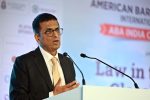


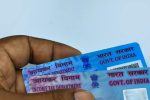
Gandhi has repeatedly denied these allegations, asserting that he has always been an Indian citizen and has never held foreign nationality. His political opponents, however, continue to use the issue as a point of attack, further fueling the controversy. The matter has become deeply politicized, with BJP leaders, including Swamy and Shishir, consistently pushing for a legal examination of Gandhi’s citizenship status.
If the court ultimately determines that Gandhi does indeed hold dual citizenship, this could have significant political and legal implications. It could lead to calls for his disqualification from holding public office, particularly given his prominent role as a Member of Parliament and Leader of the Opposition. Such a ruling would also open up broader questions about the eligibility of other politicians and public figures with alleged foreign connections.
The Role of the Ministry of Home Affairs
The Ministry of Home Affairs has been at the center of this ongoing legal and political battle. Under Indian law, the ministry is responsible for determining the status of an individual’s citizenship and for taking action if it is found that a person holds dual nationality. In this case, the ministry’s response to the representations made by Shishir and others is critical.
The Home Ministry will have to clarify whether Rahul Gandhi possesses any foreign citizenship and, if so, determine whether his actions or affiliations violate the legal framework governing Indian citizenship. The outcome of this case may set a precedent for future disputes regarding dual citizenship, especially for public figures in Indian politics.
Implications of the Case
The legal proceedings surrounding Rahul Gandhi’s citizenship raise important questions about the interpretation and enforcement of India’s Citizenship Act. The case underscores the complexities of dual nationality in a globalized world, where many individuals maintain ties to multiple countries through education, business, or family.
For the general public, the case serves as a reminder of the importance of adhering to legal and constitutional requirements regarding citizenship. It also highlights the need for clarity and transparency from the Ministry of Home Affairs in handling such matters.
As the case continues, with the next hearing scheduled for December 19, all eyes will be on the Ministry of Home Affairs and the court’s final judgment. This case could have far-reaching consequences for Indian politics, particularly in terms of the eligibility of politicians with ties to foreign countries.
The Allahabad High Court’s decision to instruct the Ministry of Home Affairs to address the petition regarding Rahul Gandhi’s citizenship is a significant development. As the legal process unfolds, it is clear that this issue will remain a point of contention in Indian politics. The outcome will likely have profound implications for Rahul Gandhi’s political career, the integrity of Indian citizenship laws, and the broader landscape of Indian politics.
